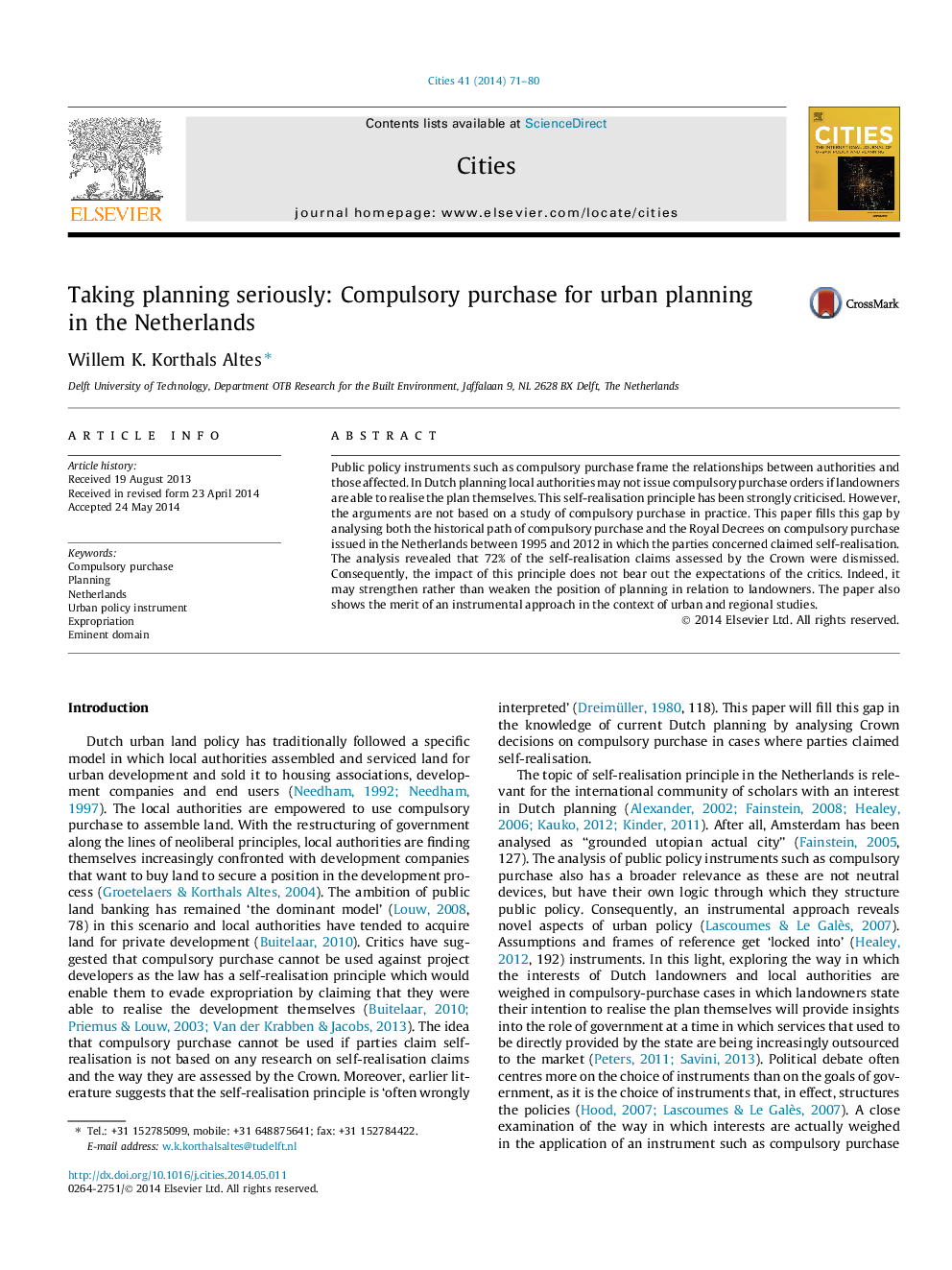| Article ID | Journal | Published Year | Pages | File Type |
|---|---|---|---|---|
| 10489863 | Cities | 2014 | 10 Pages |
Abstract
Public policy instruments such as compulsory purchase frame the relationships between authorities and those affected. In Dutch planning local authorities may not issue compulsory purchase orders if landowners are able to realise the plan themselves. This self-realisation principle has been strongly criticised. However, the arguments are not based on a study of compulsory purchase in practice. This paper fills this gap by analysing both the historical path of compulsory purchase and the Royal Decrees on compulsory purchase issued in the Netherlands between 1995 and 2012 in which the parties concerned claimed self-realisation. The analysis revealed that 72% of the self-realisation claims assessed by the Crown were dismissed. Consequently, the impact of this principle does not bear out the expectations of the critics. Indeed, it may strengthen rather than weaken the position of planning in relation to landowners. The paper also shows the merit of an instrumental approach in the context of urban and regional studies.
Related Topics
Social Sciences and Humanities
Business, Management and Accounting
Tourism, Leisure and Hospitality Management
Authors
Willem K. Korthals Altes,
